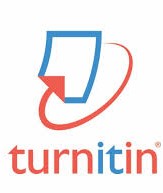Impact of Electronic Word of Mouth Social Media on the Decision to Choose Nusa Penida as a Tourist Destination with Mediated e-Trust
Abstract
ABSTRACT
Based on data published by the Badan Pusat Statistik (BPS), it shows that the popularity of Indonesian tourism is increasing and making Indonesian tourism one of the country's main income sectors. One of the tourist destinations that has been increasing lately, which can be seen from the increasing number of tourist visits, is Nusa Penida in Klungkung Regency, Bali. The lack of infrastructure does not seem to reduce the number of tourist visits to Nusa Penida. This is inseparable from the government's efforts in promoting Nusa Penida and also the widespread information about this tourist destination on social media. For this reason, this study seeks to find out the influence of social media electronic word of mouth (e-WOM) on the decision to choose a tourist destination by taking a case study in Nusa Penida, Indonesia by using the e-Trust variable as a mediating variable. Data collection in this study was conducted through a survey using a questionnaire. The number of respondents for this study was 50 respondents, of which respondents were tourists who had social media and had visited Nusa Penida. Data analysis in this study used regression analysis which was processed using SPSS by testing it first for validity, reliability and classic assumption tests.Key words: e-WOM, e-Trust, Purchase Decision, Tourist Destination, Nusa Penida, Sosial Media
References
Al-Maghrabi, Talal, dan Dennis, Charles. (2011). What drives consumers’ continuance intention to e-shopping? International Journal of Retail & Distribution Management, vol. 39, no. 12, pg. 899-926.
Asosiasi Penyelenggara Jasa Internet Indonesia dan Badan Pusat Statistik. (2013). Penggunaan Internet Sektor Bisnis.
Dellarocas, C. (2006). Strategic Manipulation of Internet Opinion Forums: Implications for Consumers and Firms. Managemeng Science, vol. 52, no. 10, pg. 1577-1593.
Ebert, Ronald J. dan Griffin, Ricky W. (2009). Business Essentials. Seventh Edition. Pearson : New Jersey
Fusaro, M., Theoret, Y. and Charron, C.-Y. (2002). Generating Trust in Online Business, The Communicators, IQ Books, Montreal.
Goyette, I; Richard, L; Bergeron, J; dan Marticotte, F. 2010. E-WOM Scale: Word-Of-Mouth Measurement Scale For E-Service Context. Canadian Journal Of Administration Sciences. 27 (1), 5-23.
Harris, L.C. and Goode, M. (2004), “The four levels loyalty and the pivotal role of trust: a study of online loyalty, trust, satisfaction, value, and service quality”, Journal of Retailing, Vol. 80 No. 2, pp. 139-58.
Jarvenpaa, S.L., N. Tractinsky, and M. Vitale, “Consumer Trust in an Internet Store,” Information Technology and Management, Vol. 1, No. 1-2:45-71, 2000.
Kotler, Philip dan Armstrong, Gary. (2010). Principles of Marketing. Thirteen Edition. Pearson : New Jersey.
Kotler, Philip et.al. (2012). Principles of Marketing: An Asian Perspective. Pearson : Singapore
Megawati, Yenli. (2018). Pengaruh Kualitas Website Terhadap Keputusan Pembelian Layanan Pemesanan Kamar Hotel pada Situs Traveloka. FAME – Journal Food and Beverage, Product and Services, Accomodation Industry, Entertainment Services, vol. 1, no. 2, pg. 124 0 130.
Patrali Chatterjee. (2001). "Online Reviews: Do Consumers Use Them?", in NA - Advances in Consumer Research Volume 28, eds. Mary C. Gilly and Joan Meyers-Levy, Valdosta, GA : Association for Consumer Research.
Sekaran, Uma & Bougie, Roger. (2013). Research Methods for Business. United Kingdom: John Wiley & Sons Ltd.
Swidi, A.K., S. Behjati and A. Shahzad, 2012. Antecedents of Online Purchasing Intention among MBAStudents: The Case of University Utara Malaysia Using the Partial Least Squares Approach. International Journal of Business and Management, 7(15): 35-49.
Trusov, M. et. al. (2009). Effects of word of mouth versus traditional marketing: findings from an internet social networking site. Journal of Marketing, vol. 73, no. 5, pg. 90-102.
Widyanto et al. (2017). Pengaruh e-WOM di Instagram terhadap Minat Berkunjung dan Dampaknya pada Keputusan Berkunjung – Survei pada Pengunjung Hawai Waterpark Malang. Jurnal Administrasi Bisnis (JAB), Vol. 45, No.1 April 2017, pg. 94-101.
Online
www.bps.go.id
https://m.detik.com/travel/travel-news/d-3808281/awal-tahun-2018-indonesia-gencar-promosi-pariwisata-di-belanda
https://travel.kompas.com/read/2018/08/30/113628527/indonesia-gelar-promosi-wisata-terbesar-di-inggris
https://radarbali.jawapos.com/read/2018/02/04/46193/pariwisata-nusa-penida-menggeliat-warga-mulai-pulang-kampung
http://www.balipost.com/news/2018/04/13/42821/Kepulauan-Nusa-Penida,Pariwisata-dan...html/kepulauan-nusa-penida,-pariwisata-dan-infrastruktur-masih-timpang-1
https://inet.detik.com/cyberlife/d-3912429/130-juta-orang-indonesia-tercatat-aktif-di-medsos
https://www.idntimes.com/news/indonesia/fitang-adhitia/millennials-dominasi-penggunaan-internet-kebanyakan-untuk-chatting-dan-media-sosial-1/full
DOI: http://dx.doi.org/10.30813/jhp.v5i1.1522
Refbacks
- There are currently no refbacks.
.png)




